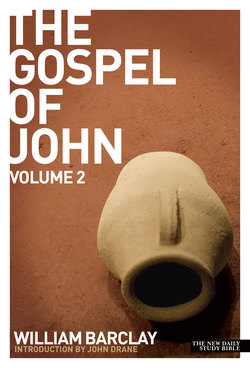Читать книгу New Daily Study Bible: The Gospel of John vol. 2 - William Barclay - Страница 10
На сайте Литреса книга снята с продажи.
ОглавлениеINTRODUCTION
(by John Drane)
The chapters covered in this volume raise many questions – about the nature of Jesus’ teaching, about the value of John’s information, and about the social dynamic of life in the earliest Christian communities. They were all familiar enough in William Barclay’s day, but his intention had always been to comment on the actual message of the text as it might impinge on the lives and spiritual development of his twentieth-century readers. This made his work widely accessible, though it inevitably meant that he rarely provided a definitive account of such historical and literary questions. Consequently, the differences between John’s chronological scheme of the final week of Jesus’ life and the picture presented in the synoptic gospels only feature in a short appendix, while there is no real consideration of why a central event of that week in the synoptic accounts – the Last Supper – was left out of John’s narrative, or why Jesus’ teaching here is so different from the parables found in the other gospels.
Another surprising omission is the way Barclay has relatively little to say about the circumstances of the church group for whom this gospel was originally written. At the time of its compilation, Christians were clearly in the midst of some bitter arguments with the Jewish community, and this comes out at many points in the text. Of course, what they were arguing about was not racially motivated, but concerned the nature of true spirituality. Later generations, however, picked up some of the nuances of this debate and used it as justification for the kind of anti-semitism that eventually led to the Nazi Holocaust. Had he been writing today, William Barclay could not have avoided addressing this issue – though, in fairness to him, it is only since his death that this connection has been fully appreciated.
There are plenty of good things in here to make up for such deficiencies. Barclay is at his best when breathing new life into the characters who feature in these stories – Pilate, Peter, Mary and John, among many others. Moreover, his comments (14:6) about the nature of truth, emphasizing its personal rather than propositional nature, speak directly to the concerns of today’s people, who like Pilate are still asking what truth might be. This is just one reason among many why William Barclay still has much to offer to spiritual searchers in a postmodern generation.
John Drane
University of Aberdeen
2001
